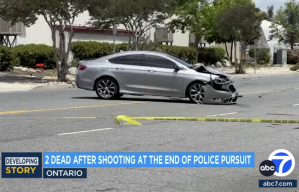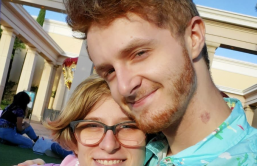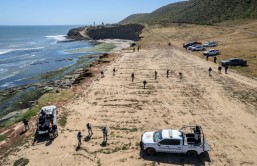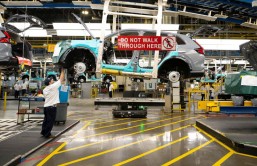Long considered an extreme reaction to fears of Armageddon and imminent nuclear disaster, 'preppers' in the US have traditionally been portrayed as motivated by extreme right-wing or apocalyptic views. New research from Dr. Michael Mills, from the University of Kent, challenges this view.
Prepping, which involves stockpiling supplies including food, water, medicine, and weapons, has been on the rise in the United States over the last decade. Many commentators and the mainstream media claim the rapid rise in the phenomenon after the election of President Barack Obama in 2008 was driven by an extreme political reaction to his presidency.
Research carried out by Dr. Mills, Lecturer in Criminology in the School of Social Policy, Sociology and Social Research, included interviews with preppers based in 18 states to examine their motivations for hoarding items. It found that, though the fear of President Obama and his political agenda played a role, those who engaged in the activity were motivated more by the general culture of fear that informs modern mainstream American society. Further, the research argues that a regular flow of recommendations from the US government on how to prepare for potential disasters, including, for example, advice to stockpile water, have, to an extent, helped fuel the growth of 'prepping'.
Dr. Mills' research presents a more nuanced view of prepping, which has traditionally been portrayed as an apocalyptic belief in imminent disaster or the end of the world. Rather, modern preppers are responding to a general sense of fear and concern about risks including economic collapse, cyber-attacks, terrorism, pandemics, and environmental disasters, causing them to seek self-sufficiency 'just in case' the worst should happen. Much of this fear is not derived from extreme ideologies but nevertheless remains connected to established right-wing politics in America, which views Obama and other Democratic Party leaders exclusively through fear.
He said: 'Fear is now deeply entrenched in modern American culture and is the principal reason that so many citizens are engaging in 'prepping'. Many believe that the government's response in the event of a calamity, whether it's a natural disaster or an act of terrorism, simply won't be adequate to meet their needs. Many also believe that, under Democrat leadership, America becomes more vulnerable to terrorist attacks, financial collapse, and international hostility.
'While the media portrays 'preppers' as extremists, our view is much more nuanced. Rather than seeing prepping as an exception within America's right-wing political culture, we ought to see it as being reflective of increasingly established and popular outlooks.'
U.S.
Forget 'Obamageddon', 'Prepping' is Now Part of Mainstream US Politics and Culture
@ 2024 HNGN, All rights reserved. Do not reproduce without permission.
Join the Discussion
Most Read
Hot Topics








